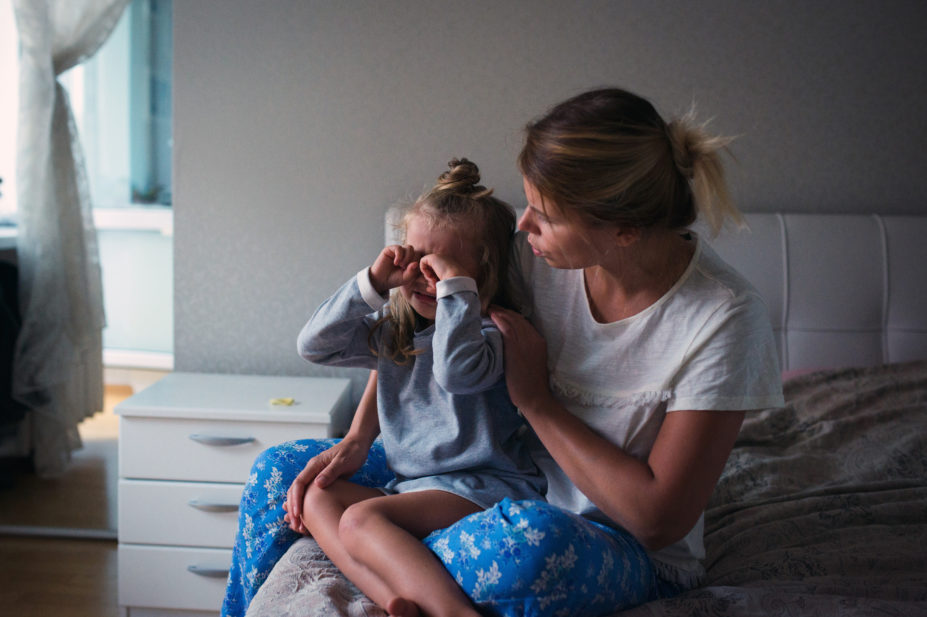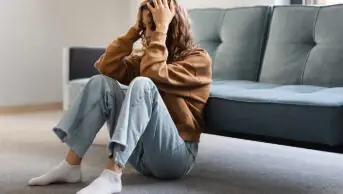
Shutterstock.com
Prescribing of antidepressants in children aged 5–12 years has increased by more than 40% between 2015 and 2021, figures obtained by The Pharmaceutical Journal reveal.
NHS data obtained via a freedom of information request, provided on 10 August 2021, show a steady increase over the past six years in the number of unique patients in England aged 5–12 years who were prescribed antidepressants, which were dispensed in primary care settings.
Between April 2015 and April 2021, the number of unique patients aged 5–12 years prescribed antidepressants increased by 41%, from 1,299 to 1,831; of these patients, the majority were males (772 and 1,112, respectively).
In March 2020, the number of unique patients aged 5–12 years prescribed antidepressants reached a peak of 2,031 (792 females, 1,224 males, and 15 ‘unknown’) — a 15% increase compared to March 2019.
Kirsten Shukla, a consultant child and adolescent psychiatrist at Oxford Health NHS Foundation Trust, said antidepressants could be prescribed for moderate-severe depression as well as anxiety in children aged as young as five years.
“The [National Institute for Health and Care Excellence] guideline — published in 2019 — states that, following multidisciplinary review, [prescribers can] cautiously consider fluoxetine if moderate to severe depression in a child (5–11 years) is unresponsive to a specific psychological therapy after four to six sessions, although the evidence for fluoxetine’s effectiveness in this age group is not established.”
Shukla said that, in her view, antidepressants were “overprescribed” in children, particularly in this age group.
“The increased numbers of children on antidepressants, and in particular young children, are of massive concern,” she said.
“The difficulties with withdrawing from these drugs has only more recently been acknowledged; there is a very high risk that children who start taking these drugs when very young will continue taking them for many years and into adulthood.
“Unfortunately, children, young people and families are drawn into a culture where people believe that depression is caused by a ‘chemical imbalance’ in the brain, which is not true,” she added.
“Many young people, and parents, demand to be prescribed antidepressants.”
Tom Madders, director of campaigns at YoungMinds, a children and young person’s mental health charity, said there could be “many reasons” why a child needs support for their mental health.
“We know that experiencing trauma, abuse or discrimination at a young age can have a huge impact, while pressures at school, at home or with friends can also take their toll. The pandemic has exacerbated many of these pressures, and children and young people have struggled with social isolation, loneliness and fears about the future.“
Madders also said that, while antidepressants could play a role in some young people’s mental health, it was “crucial” that younger children get fast access to talking therapies, and that antidepressants are not used as a substitute when other treatments are not available.
“Long waiting times and high thresholds for treatment can be a barrier for children and young people getting the right support. That’s why it’s crucial that we see extra investment in specialist mental health services — but also in early support for young people, so that they have somewhere to turn when problems first emerge.”
In June 2021, analysis by The Pharmaceutical Journal revealed that peaks in the number of young people prescribed antidepressants in England coincided with periods of lockdown during the COVID-19 pandemic.
According to NHS data, in March 2020 — when the first UK lockdown began — the number of unique patients aged 0–17 years who were prescribed antidepressants reached a peak in England, with 17,902 females and 9,855 males prescribed antidepressants. This marked the first time the number of females prescribed antidepressants had surpassed 17,000 during the data period.
The peak represented an 8% increase on the number of unique patients aged 0–17 years prescribed antidepressants in March 2019, and a 21% increase on the number seen in March 2016.
Two further peaks of 17,311 and 17,088 antidepressant prescriptions for female patients aged 0–17 years were seen around the time of the second and third lockdowns, in December 2020 and January 2021, respectively.
READ MORE: Peaks in number of young people prescribed antidepressants coincide with lockdowns


